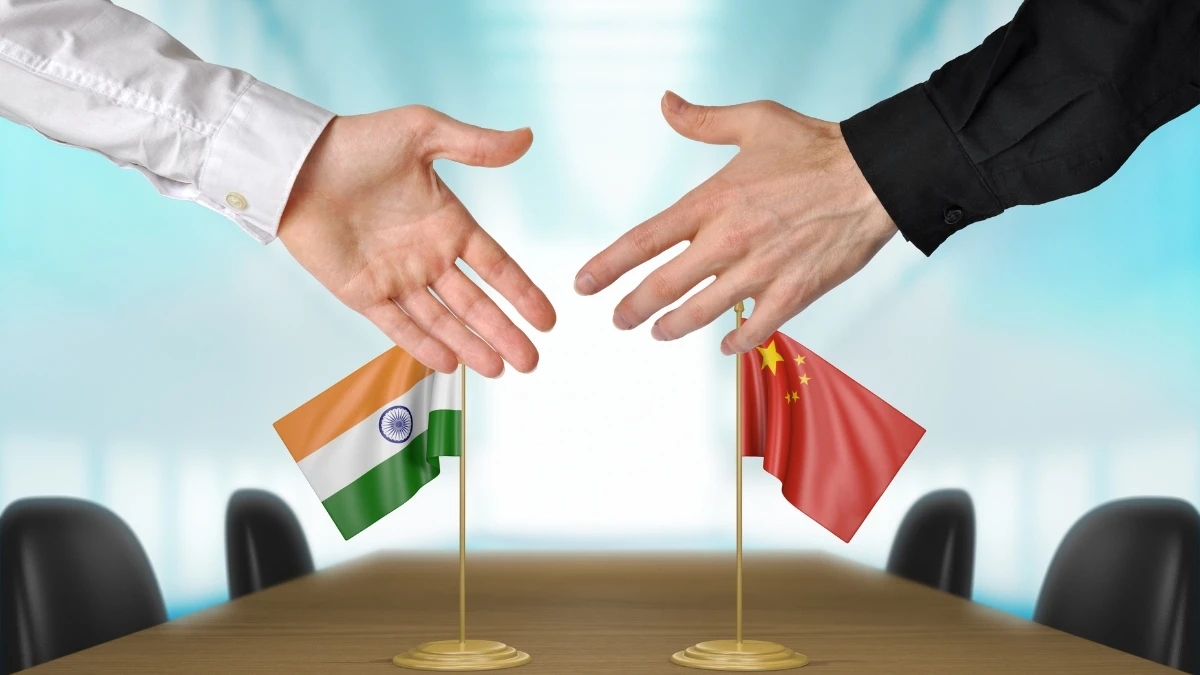New Delhi, Aug 14 (PTI) Former NITI Aayog Vice Chairman Rajiv Kumar on Thursday pitched for the removal of restrictions on investments from China into India, saying it will boost domestic manufacturing and generate employment.
Kumar, in an interview with PTI Videos, further said China has become a significant foreign investor in other countries, and India needs that investment.
"So, I think the time has come to seriously consider permitting Chinese investments into India," he said.
In the last few months, India and China have initiated a number of measures to repair the bilateral ties that had severely nosedived following the deadly clashes between the two militaries in June 2020.
"And let me be forthright, I think it is time to remove Press Note 3 that regulates investment from neighbouring countries.
"The only neighbouring country which matters is, as you know, is China," Kumar said.
Under Press Note 3 of 2020, the government has made its prior approval mandatory for foreign investments from countries that share land borders with India. These countries are China, Bangladesh, Pakistan, Bhutan, Nepal and Afghanistan.
He further explained that investments from China will help produce things locally in India.
"That is always better, because imports from China do not create employment in India.
"Imports do not create backwards linkages. So if you allow Chinese manufacturing investments, they will manufacture here, and they will produce, and maybe they can also export from India," Kumar noted.
According to data from economic think tank GTRI, China has emerged as India's largest trading partner, with two-way commerce of USD 118.4 billion in 2023-24, slightly edging past the US.
Prime Minister Narendra Modi is expected to travel to China later this month to attend the annual summit of the Shanghai Cooperation Organisation (SCO).
After a gap of over seven years, Prime Minister Narendra Modi is expected to travel to China. Modi will embark on a visit to Japan around August 29, and after concluding the trip, he will travel to Tianjin for the SCO summit, which will be held on August 31 and September 1.
Responding to a question on the additional 25 per cent levy on India announced by US President Donald Trump for New Delhi's purchases of Russian oil, Kumar said, "What we need to do is to take steps to ameliorate the impact of this." He further noted that economists have estimated that India's GDP could be affected by 0.25 to 0.5 per cent due to additional tariffs by the US, but this does not take into account that New Delhi can diversify its exports, which were previously directed to Washington, to other countries.
Asked about the additional penalties on India for New Delhi's purchases of oil from Russia, Kumar said, "We should not let all this impact our very long-standing, sort of a strategic relationship with Russia. They have always stood by us." On August 6, US President Donald Trump announced an additional 25 per cent tariff on all Indian imports, in addition to the existing 25 per cent duty, taking the total to 50 per cent from August 27.
"But on Russian oil imports, when push comes to shove, then you will have to replace it with oil imports from other countries," he said.
The additional 25 per cent duty will come into effect on August 27.
Asked if India should grant access to the US in the Indian agriculture sector, Kumar said that Indian co-operatives in the dairy sector can provide the US imports with a very tough fight and may improve the competitiveness and productivity in the domestic dairy sector.
"I am not so averse to permitting some access to US imports in our agriculture sector as long as it is not genetically modified organism (GMO)," he said.
Since the steep tariffs are likely to impact the USD 27 billion of non-exempt exports that India sends to the US, there has been speculation about halting or curtailing oil imports from Russia.
India is the largest importer of Russian crude, purchasing 1.6 million barrels per day in July. However, it has not placed any orders for August and September, mainly because the discounts that initially encouraged Indian refiners to import oil from the Black Sea have decreased to about USD 2 per barrel.
In terms of volume, India imported 88 million tonnes from Russia in FY25, accounting for the total shipment of 245 million tonnes.
With such a minimal price advantage compared to other internationally available oil, Indian refiners did not place any orders for August and September.
Oil companies typically secure import contracts about two months in advance, meaning the supplies for August and September were arranged before Trump's August 7 announcement of higher tariffs.
This report includes content sourced from Press Trust of India (PTI), edited for clarity and context.






